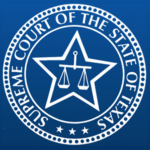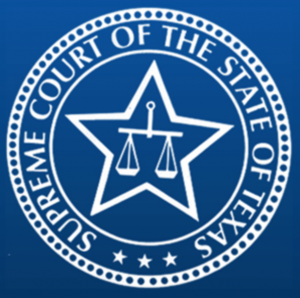 The Supreme Court of Texas recently delivered an opinion addressing whether the Texas Public Utility Commission (PUC) has jurisdiction over a negligence case involving a good Samaritan. Here, the deceased was electrocuted while trying to help victims of a crash that caused a power line to fall. The good Samaritan’s estate and family filed a negligence lawsuit against the power line company, arguing that they were negligent in their duty to design, construct, operate, and maintain its electricity system. They asserted that the company failed to ensure that they would de-energize portions of the distribution lines when they experience faults.
The Supreme Court of Texas recently delivered an opinion addressing whether the Texas Public Utility Commission (PUC) has jurisdiction over a negligence case involving a good Samaritan. Here, the deceased was electrocuted while trying to help victims of a crash that caused a power line to fall. The good Samaritan’s estate and family filed a negligence lawsuit against the power line company, arguing that they were negligent in their duty to design, construct, operate, and maintain its electricity system. They asserted that the company failed to ensure that they would de-energize portions of the distribution lines when they experience faults.
The accident occurred when one vehicle ran a red light and hit a wooden utility pole maintained by the company. The man was driving past the scene when he stopped to help the accident victims. As he was walking, the man came into contact with electricity radiating through the ground. The shock knocked him to the ground and his clothes caught on fire; tragically, he passed away three weeks later from his injuries.
In response, the power company filed a plea arguing that Texas’ PUC maintains jurisdiction over the case. In support of their claim, the power company argued that PUC has exclusive jurisdiction over an electric company’s utility rates, operations, and services, extends to adjudicating whether a company complied with the law. The defendants argued that the plaintiffs’ complaints bring up fundamental questions about how a power company maintains its distribution systems. The plaintiffs argued that the case falls under the Texas Estates Code, and the probate court has jurisdiction to adjudicate the matter.
 Texas Injury Lawyers Blog
Texas Injury Lawyers Blog


 The Supreme Court of Texas recently issued an
The Supreme Court of Texas recently issued an  The Supreme Court of Texas recently issued a
The Supreme Court of Texas recently issued a  May 9, 2021: KILGORE, Texas (KETK) – An East Texas toddler who was fighting for his life
May 9, 2021: KILGORE, Texas (KETK) – An East Texas toddler who was fighting for his life  April 2021: Playa del Carmen, Q.R. Mexico— A criminal investigation into the death of a 13-year-old boy at an Xcaret water park has been opened. In a press release, the Attorney General of the Mexican state made the announcement after it was notified of the death of the child via a private hospital.
April 2021: Playa del Carmen, Q.R. Mexico— A criminal investigation into the death of a 13-year-old boy at an Xcaret water park has been opened. In a press release, the Attorney General of the Mexican state made the announcement after it was notified of the death of the child via a private hospital. Many Texas companies hire independent contractors because of their cost-effective nature. With an independent contractor, companies can use the contractor for a particular project when it needs to be done and are free from being tethered to the particular contractor when the work is complete. When a contractor’s actions cause an accident, however, there is a question of liability on the company’s part. Is the contractor or the company responsible? It can often be a complicated question.
Many Texas companies hire independent contractors because of their cost-effective nature. With an independent contractor, companies can use the contractor for a particular project when it needs to be done and are free from being tethered to the particular contractor when the work is complete. When a contractor’s actions cause an accident, however, there is a question of liability on the company’s part. Is the contractor or the company responsible? It can often be a complicated question. Recently, a Texas district court issued an
Recently, a Texas district court issued an  Many Texans spend the majority of their time at work. As a result, San Antonio
Many Texans spend the majority of their time at work. As a result, San Antonio